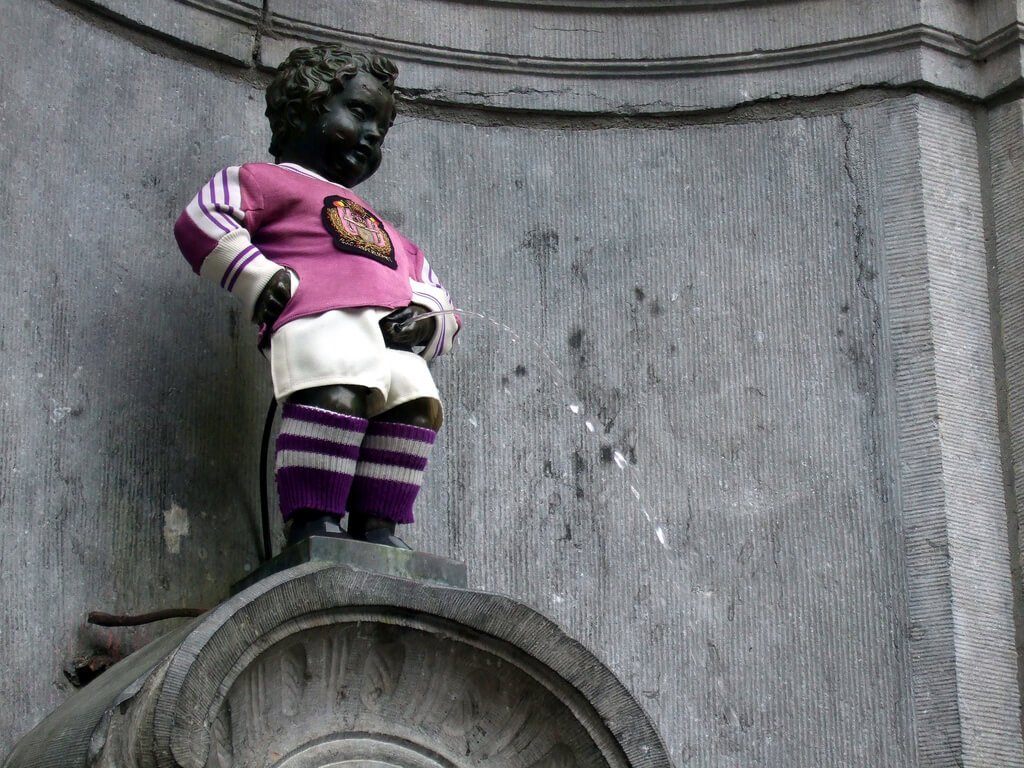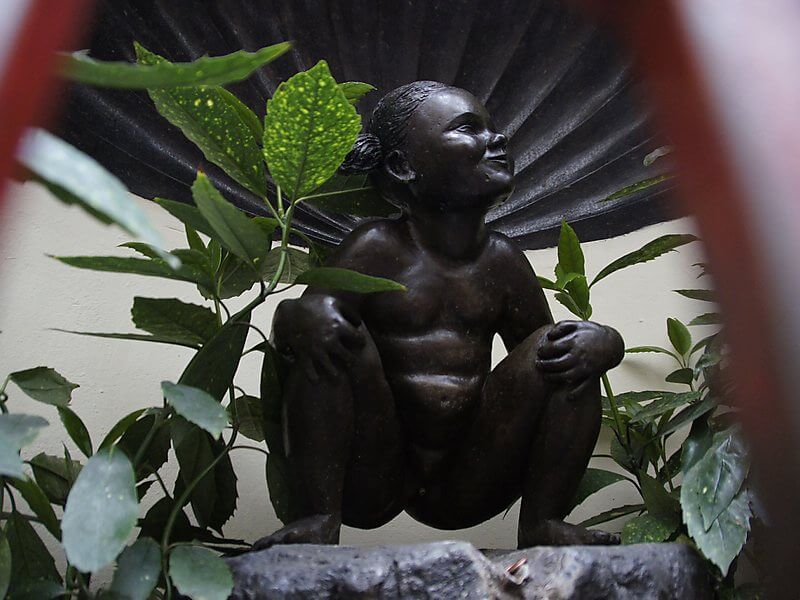Drinking one’s own urine as a medication is a very old idea, its beginnings lost in antiquity. Naturally, it has been dismissed as folklore, unworthy of serious study by modern medicine. Yet it is a curiously persistent notion – a fact that of itself bears some consideration.
Many investigators have independently and unequivocally demonstrated the presence of competent (physiologically active) antibodies in normal human urine. In fact it could be a unique therapeutic agent since only that patient’s urine could possibly contain the exact correct antibodies to his or her allergens and pathogens. Certainly it has strong theoretical plus points.
Before you dismiss it as disgusting nonsense, consider the following: YOU spent nine months drinking your own urine! While you were in the womb, every fetus floats in amniotic fluid, which consists primarily of urine from the fetus and we come to no harm. Indeed, it is a time of prodigious growth!
We drink this amniotic fluid and then we urinate (repeatedly). We breathe it in and, in doing so, our lungs grow and develop, without coming to harm.
But then we are born, and suddenly we consider urine to be dirty. In fact it is almost completely sterile. Hygiene is not an issue. The only risk is from re-ingesting waste products that we just past out via our kidneys. But that’s more theoretical than a health hazard.
Only if you drank nothing else but your own urine would you come to harm and that’s NOT what I am writing about here.
Tense? Need To Relax?
Take a tipple of pee! Research on yogis (holy men) in India who drink their own urine, as they have been doing for millennia, showed significant titers of a stress-reducing hormone, melatonin, present in urine. The reputable English weekly journal The New Scientist carried the story.
Indeed, we use dried urine as a handy test for melatonin levels; the so-called Dutch test.
Melatonin, as you know, has been used as a relaxant for short-term treatment of trouble sleeping due to sleep cycle disorders and time changes.
Melatonin is secreted at night, so logically, the best pee to drink if you want to relax is the first void of the morning.
No, I’m not kidding. It’s not nearly such a daft idea as swallowing Ambien, Valium, SSRIs or Xanax, yet people take those filthy chemicals all the time and think nothing of it!

Here is the famous Manneken Pis (little man taking a piss) in Brussels, Belgium. If you’ve never heard of him before he’s very famous, the pride of Brussels dwellers and he has THOUSANDS of costumes, gifted from all over the world (like this football outfit)
Urine Therapy Background
The earliest scientific report, dating back to 1863, is in the Physiological Memoirs of Surgeon-General Hammond of the US Army.
But the paper that seems to have generated most interest among fellow doctors was an account in 1947 by Dr Jonas Plesch, who was, incidentally, personal physician to Albert Einstein. He left Germany at the time of the Nazi takeover and set up a fashionable practice in London. Dr Carl Eckhardt of Riverside, California read his paper while serving in Europe during the Second World War and put it to the test when he returned home.
He tried it out first on a member of his family with severe incapacitating eczema: the condition cleared up completely. From that time until his death in 1976, Eckhardt carried out approximately 70,000 treatments on 9,000 cases with remarkable success and relatively few side-effects.
Dr. William Fife, from Sacramento, California, next took up the mantle. Fife himself was an allergy sufferer and had been forced to retire due to ill-health. By chance he heard of auto-immune urine therapy (AIU) and, after a course of treatment, his health and vigor were restored. He has since claimed that several clinical trials have shown that over 80 per cent of patients have experienced various degrees of clinical improvement, lasting up to many years without further treatment.
It’s not exactly a cure; but it can be a big relief! AIU lowers the individual’s sensitivity and allows more contact with previous offending allergens, but sensitivity is only reduced, not abolished, so frequent injudicious antigen exposure will still cause trouble.
Fife’s Technique
The patient is given a sterile plastic urine container and a medicated swab with instructions on how to collect a sterile specimen of mid-stream urine (discarding the first flow and finishing collecting before reaching the final dregs). This is tested before use in the normal way for specific gravity, pH, glucose, proteins, etc.
The patient then lies face-down on the examination table and the urine is injected slowly over several minutes into the subcutaneous fat of the upper outer quadrant of the buttock (the dose depends on the patient’s body weight). Two ml of 2% Carbocaine (or Lignocaine in the UK) can be added to the injection solution for anesthetic purposes, unless the patient is sensitive to such a drug.
Treatments are generally given once a week but it is not detrimental if one or more doses are omitted. The intervals need not be exactly one week, but usually this is convenient from the point of view of scheduling appointments
Observation shows that improvement is frequently manifest in two stages:
- Almost immediate relief of symptoms, indicating an immune blocking effect
- A build up of tolerance after several months, suggesting an antibody mobilization, similar to that of immunization.
Advantages
There are a number of possible advantages for auto-immune urine therapy:
- Extensive allergy testing for all possible antigens is not essential to treatment, as the body makes its own antibodies to all the antigens it is reacting to. It’s a unique, personalized remedy!
- The medication is cheap and, being fresh, no preservatives are required.
- There are no toxic chemicals or drugs required which hypersensitive patients might react to.
- It has a high safety factor. Urine is naturally sterile, as I remarked. Since it is autogenous, unaltered and the antigens have been attenuated by passage through the body, the most sensitive patient is spared the danger of anaphylactic shock. Fife claimed to have given over 100,000 treatments without a single serous reaction.
Sometimes, there is a local flare up at the injection site. This may subside naturally or with the aid of an antibiotic injection. There is a notable lack of any local tissue destruction caused by the urine.
Increasing the Chances of Success
Since the success of this treatment, theoretically at least, depends on the presence of effective antibodies in the urine, it is sensible to try to boost these just before treatment. Thus the patient is told to expose him – or herself to moderate amounts of known or likely antigens the evening before reporting to the clinic. This may mean eating several suspect foods or spending some time breathing in the air in suspicious locations. Foods expected to produce a severe reaction are not eaten until arrival at the clinic (the AIU injection will then probably switch off the symptoms quickly).
The best time of all to collect urine is when the patient is at the height of a symptom attack. It may not be possible to identify any known or possible allergens for the patient but if, at the time of collecting the sample, the patient is reacting then it seems logical that at that time the urine will be loaded with antibodies. The patient may thus be told to report at once to the clinic if a reaction starts up.
As with all treatments, there is little hope of success if the patient doesn’t also carry out at least some corrective procedures in his or her environment and diet. Thus it is necessary to advise the patient to avoid addictions, such as to drugs, tobacco, alcohol, coffee, cola, wheat, sugar, milk, junk food, etc., as appropriate. Chemical fumes must also be avoided and dust or mould may need to be radically reduced in the home, depending on the nature of the problem.
But a sane person would do all that anyway!

Unsurprisingly, we now have sexual equality. Manneken Pis was created in 1618. But since 1987 we’ve had a little girl me-too. She’s called the Jaenneke Pis and she squats peeing just south of the Grand Place in Brussels! All a bit too much for American taste, I shouldn’t wonder. But Belgians love her! (I’ve never seen her but I have visited the boy! – Prof.)
Objections
Opponents of AIU say it may be dangerous. It is not. Ask actress Sarah Miles, who has imbibed some of her own urine for years. Several other celebrities have admitted to this practice too.
Fife pointed out that no one has been able to produce any disease by injecting normal, unaltered urine and that when one ureter of a laboratory mammal is severed and opened into the peritoneum no serous or fatal effects result.
Probably one of the main objections is aesthetic: the idea causes revulsion and in our culture people cannot easily accept that urine can be beneficial.
Does It Work?
In my exploration, I would say it didn’t work quite as well as was claimed.
If you want to try it, here’s a tip: drink pineapple juice or similar. It will improve the taste of your urine!
I tried it for a time back in my pioneer days of the 1980’s. I did not impose it on any patient, or imply it was necessary. But sometimes a person was just plain curious and wanted to give it a go.
There were some successes, but not enough for me to hail it as a “breakthrough”! I just thought I’d share this. It’s from a book of mine dated 1992 (Thorson’s, an imprint of Harper-Collins)
Stay Safe,

Prof. Keith Scott-Mumby
